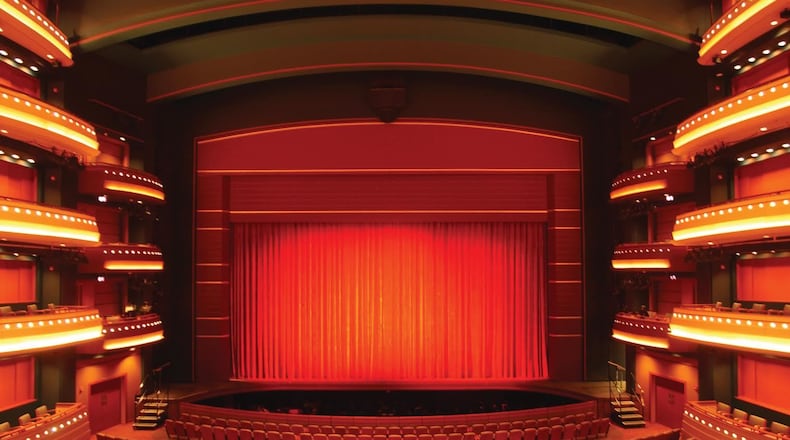That means about 300 people in the 2,324-seat Mead Theatre in the Schuster Performing Arts Center, 170 in the 1,154-seat Victoria Theatre, 32 in the 212-seat Loft Theatre and 17 in the 118-seat Dayton Theater Guild.
Ty Sutton, chief executive of Dayton Live, said it’s not a viable financial model for an industry that has been shut down for five months and is in danger of permanent damage.
“We will continue to work with state health and government officials in any way we can to find a route to a full reopening, one that will be economically feasible for us to do so,” Sutton said. “In Ohio, the arts are a $41 billion industry that employs more than 300,000 people and is an economic driver for restaurants, bars, lodging, parking, retail and the community as a whole.”
“We’ve all played to a small house,” said Debra Kent, Dayton Theater Guild board member, “but we have nine performances of each production at the Guild and if we can’t fill the house or come close to capacity, it’s just not enough revenue to pay for the performance rights.”
Communities of color have been disproportionately affected by #COVID19 - especially African American/Latino communities. We must all work together to stop the spread. When you put your #MasksOnOhio, they're really so much #MoreThanAMask. Learn more at https://t.co/F2pFmYkA3q pic.twitter.com/acEuBbMRxz
— Governor Mike DeWine (@GovMikeDeWine) August 21, 2020
The safety of the audience, the people who work backstage, directors and actors also has to be taken into consideration, Kent said.
“You can’t social distance when you are on stage,” she said.
The Dayton Performing Arts Alliance rents performance venues from Dayton Live and is waiting to see how that organization reacts to DeWine’s order.
Live in-theater performances of the Dayton Ballet, Dayton Opera and Dayton Philharmonic have been canceled or rescheduled through the end of the year.
“We can’t wait to welcome as many people back as possible today, and then everyone in the future,” said Pat McDonald, interim DPAA president and CEO. “But we do need to be very, very cautious and follow the governor’s guidelines.”
“If we can figure out how to do that in a hybrid situation we will. If we can have a small audience and a small philharmonic, for instance because it fits into this new order, we will certainly investigate that and try to come back out.”
Until a determination is made, McDonald said the artists in her organization will continue to create streaming content and programming.
“We have had the opportunity to be innovative and reinvent and explore how we can continue to deliver our mission which is transforming lives through the power of music and dance.”
Kappy Kilburn, executive director of Human Race Theatre Company, said: “It is emotionally taxing not to be able to do what we’ve committed our lives to do. This pandemic is decimating an entire generation of artists.”
Guidance is expected later this week from the DeWine administration for kindergarten-12 school performing arts programs.
Staff writer Jeremy Kelley contributed to this report.

